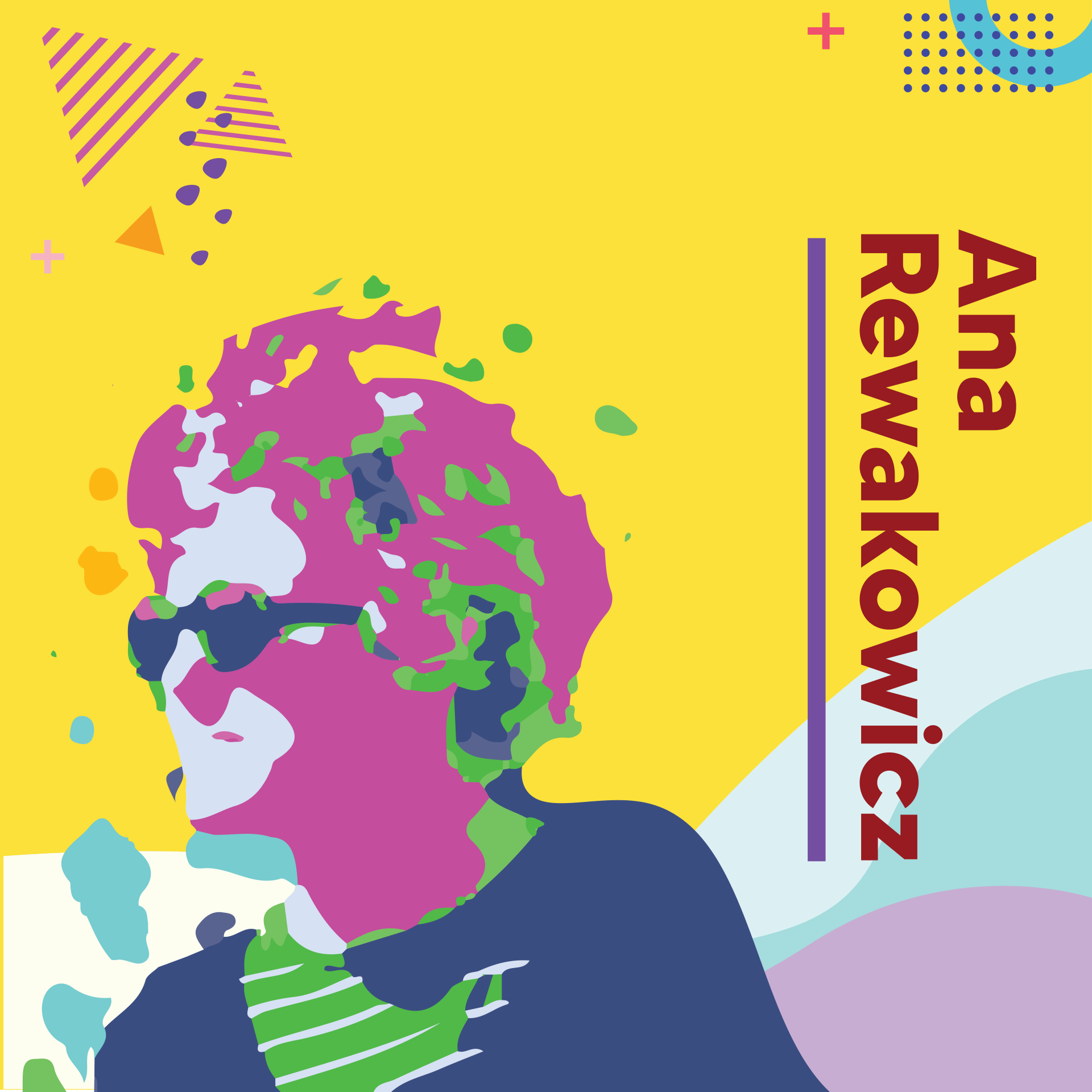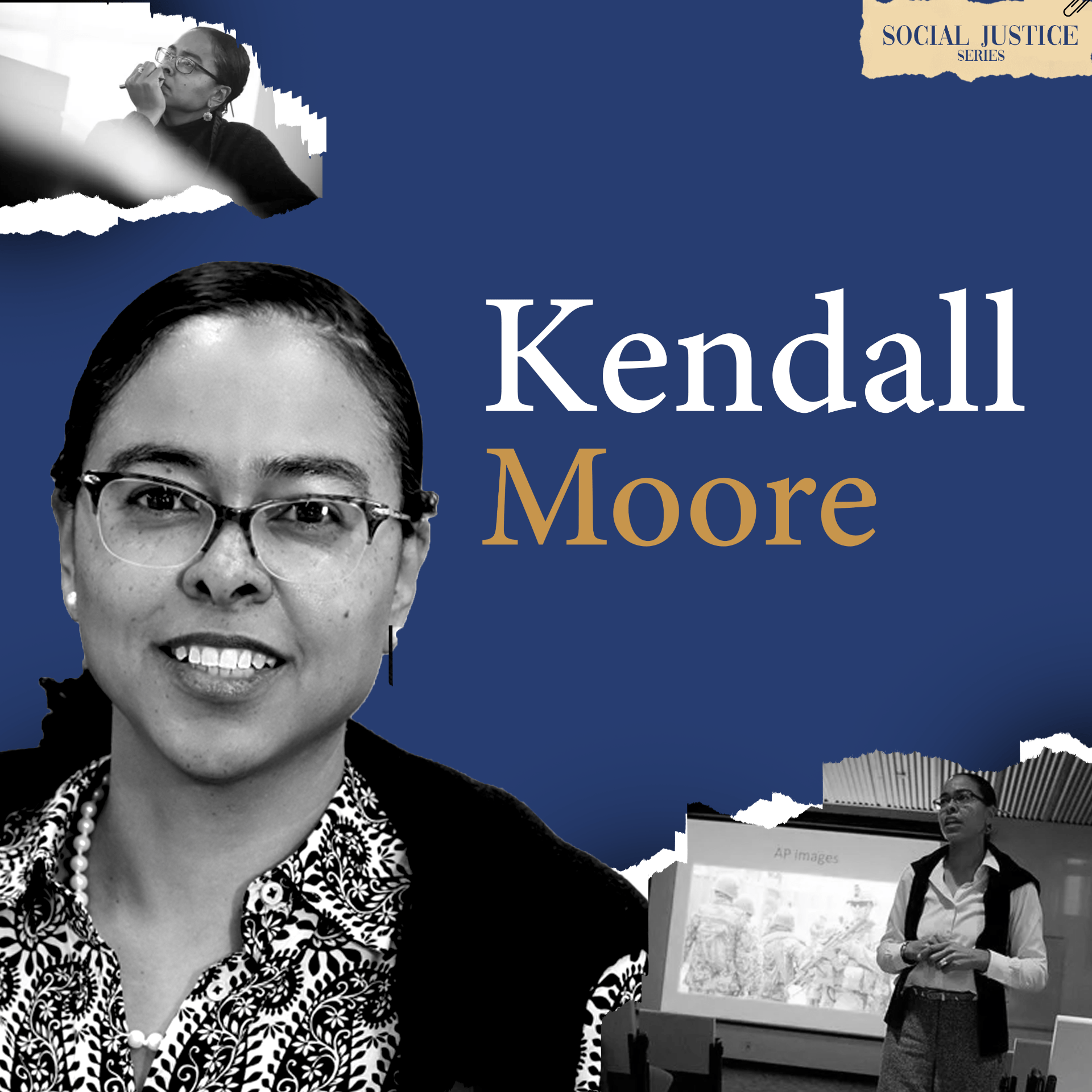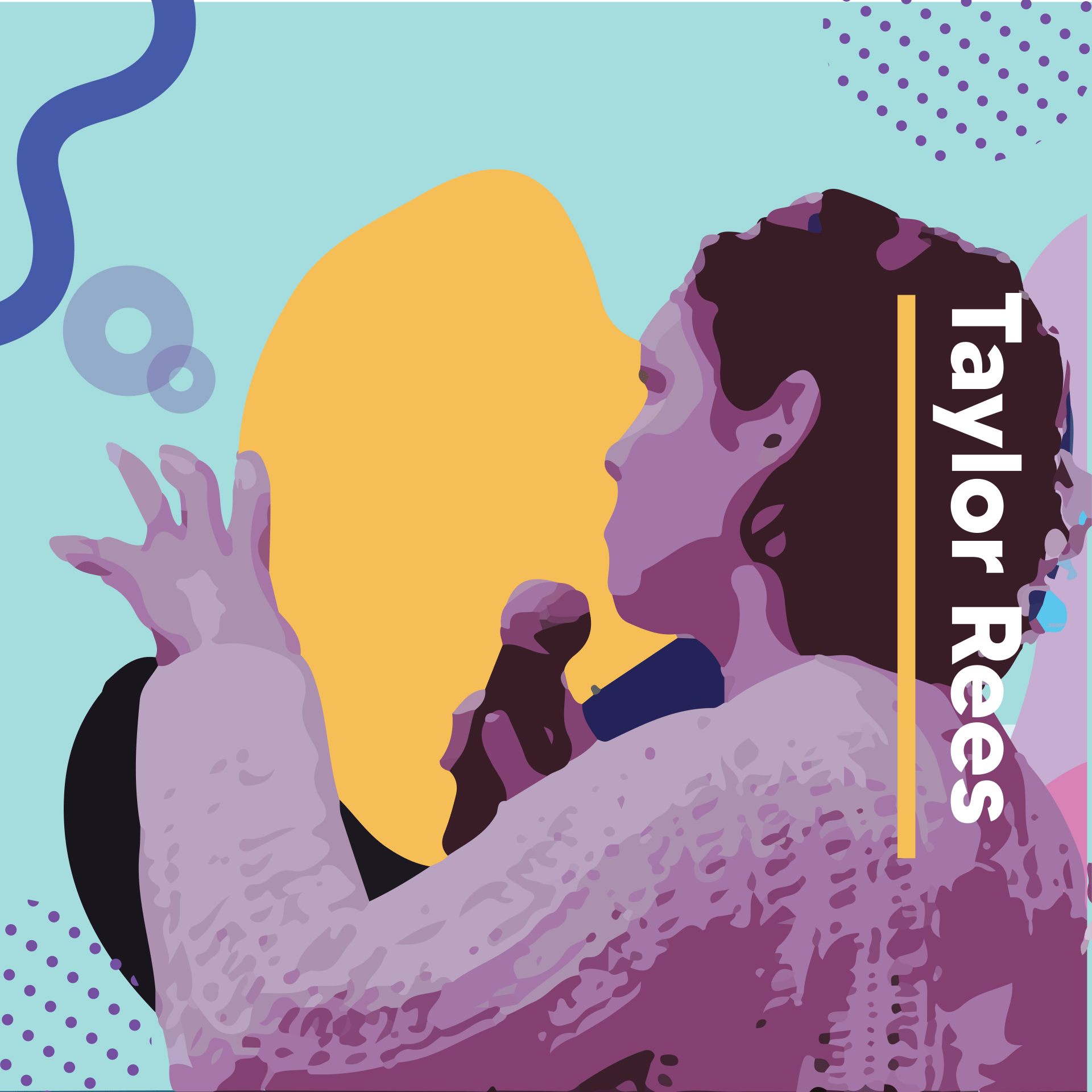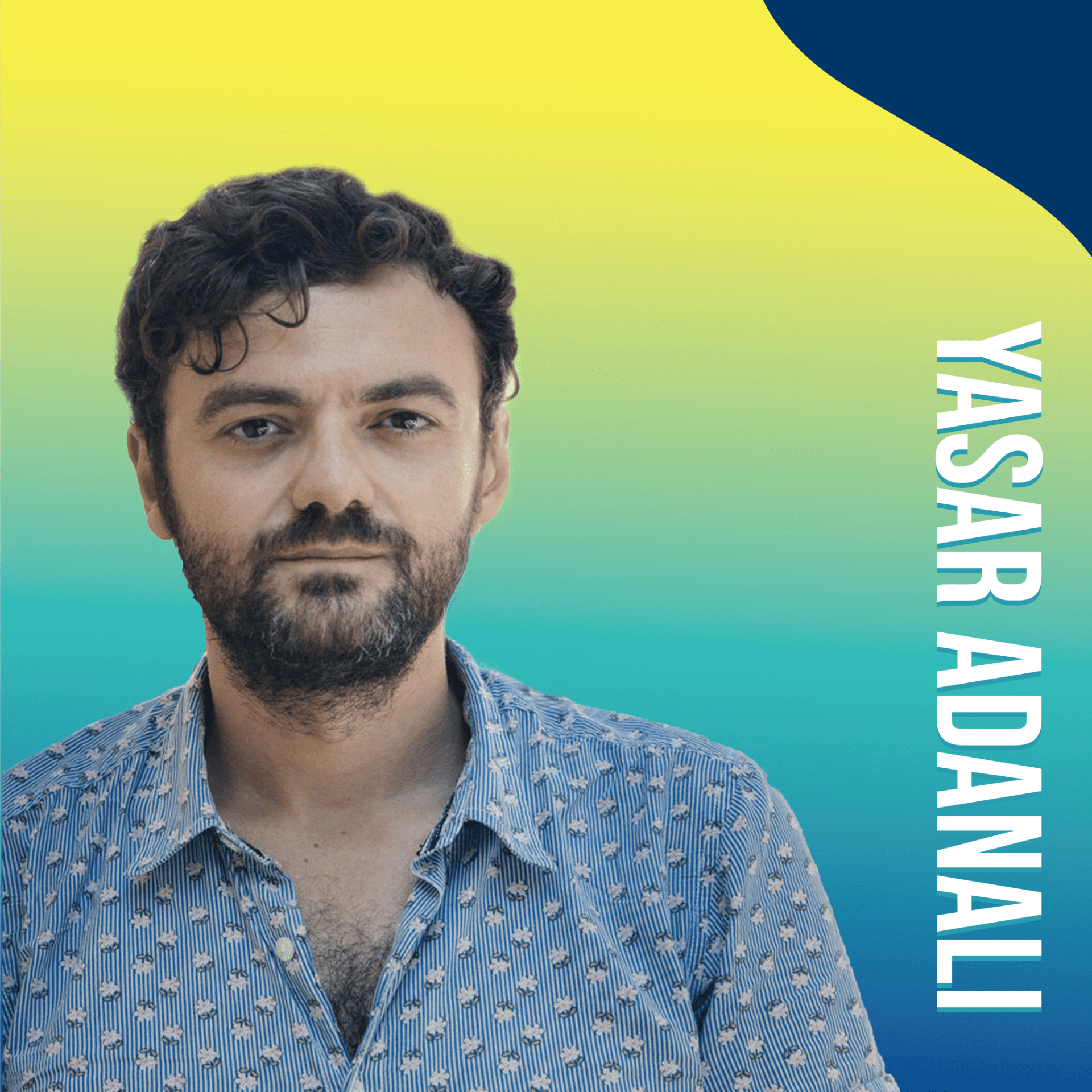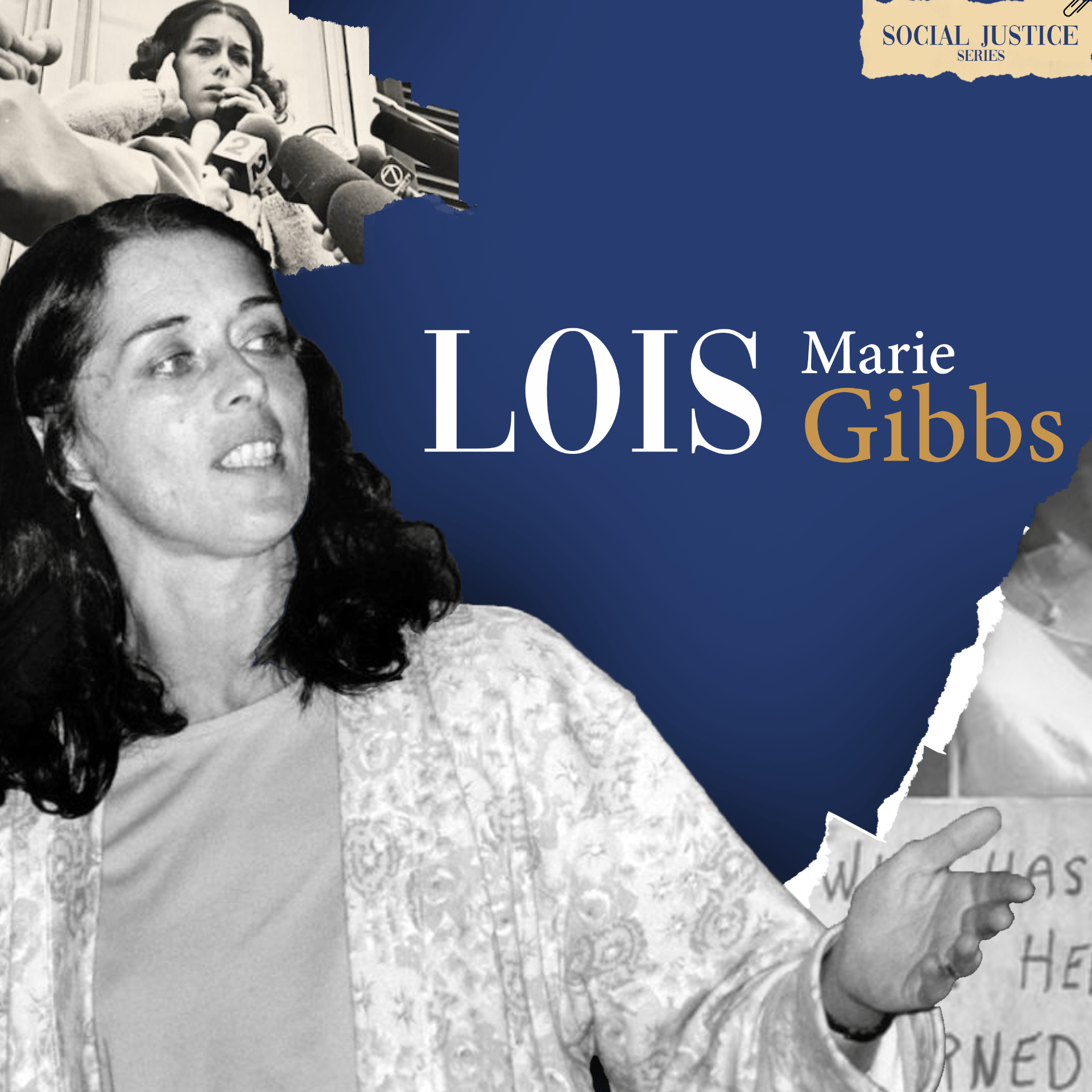
Lois Gibbs
on
Women as Changemakers
Hosted by Jihan Nabahani.
Lois Gibbs on Women as Changemakers
Guest Bio
Lois Gibbs is an award-winning activist and leader in the environmental justice movement. She is the founder and executive director of the Center for Health, Environment and Justice and the Love Canal Homeowners Association. She has been instrumental in many community battles at the local, state, and federal level to hold corporate and government entities s responsible for environmental contamination Her efforts to expose the chemical waste at the infamous Love Canal site led to the development of the EPA’s Superfund which is used to used to locate and clean up toxic sites. Lois Gibbs has won several awards and a Nobel Peace Prize nomination.
Transcript
Scroll to read more
[Intro by Leslie Dodson]
Welcome to the Global Lab’s Social Justice podcast where we connect with activists, thinkers, and doers who invite us to make the world a better place. We hope you enjoy the show.
Jihan Nabahani 00:27
Hello, my name is Jihan Nabahani. I’m a sophomore at Worcester Polytechnic Institute. I studied chemical engineering as well as Operation engineering. I am I am Palestinian, I was raised in Beirut, Lebanon. And I my question to you is, many social justice and environmental justice EF f efforts are led by women today. What do you think are some of the most important skills and qualities that young women should have to be changemakers in their communities?
Lois Gibbs 01:02
I think they just have to be women. And I don’t say that to be funny. Women look at things quite differently than men. They’re much more holistic, in in the way they see the world and the way they see the issue, they don’t just see a narrow issue. And so, you know, beyond just being a woman with those lenses, I can see wider, they really should work with figuring out communication skills, you know, how to talk with other folks without challenging them, especially men. Often when women talk to men, somehow men feel challenged by that. And women should really be ready to be courageous. I mean, you know, courage is a is a big step. And also be ready to be insulted. I mean, I can’t tell you how many times I was told and continue to be told, I’m nothing more than a housewife. Well, I may not have high school, I may not have education beyond high school, but I’m a heck of a lot more than a housewife. Right. And when I have a debate with a man, I’m often asked if I’m at that point as the month. And and, you know, this still happens today happens in the United States, which you would think is a little more progressive than some other countries, right? But it’s not true that we really are looked at as second class citizens. So you know, put your ego away, put your heart in the part where you want to help somebody and or saw something, and be courageous and don’t, you know, don’t let the names stop, you just charge right through and be courageous and say, you might think I’m just a housewife, but I’m cooking up the storm here. And like cooking up the songs gonna involve all these other people, and we’re going to change the outcome of the situation.
Jihan Nabahani 03:00
This is very inspiring. It actually brings me to my second question. People tend to think that the fact of being a woman, you get tired easily. Do you think that’s? That’s right? You get hurt easily heard? Like your story would be heard easily?
Lois Gibbs 03:21
You know, it’s interesting that I think the answer is yes. And now, if you’re a woman standing there holding a child and saying, I’m about protecting my children, or holding a bucket of water and saying, I’m about protecting the water supply for my village, you’re heard because you’re genuine people look at women as caretakers, as protectors of, of the helpless or you know, the village. But you’re not heard if you’re sitting in a scientific meeting. And I know this is a scientific school, to a certain extent, but in the scientific meeting, because you’re a woman, you’re less likely to be heard. And I’ve sat in meeting after meeting where I can argue science just as well as someone who’s teaching the class here. But because I’m a woman, you know that they just will help Lois understand this know, Lois totally understands that she disagrees with you about how to proceed forward. So I think the answer is yes, women are heard, mostly when we’re talking about caring and family and village or water, something. Women are heard less when we’re talking about hard sciences in professional positions.
Jihan Nabahani 04:44
I see myself as a social activist and Lebanon. So I would like to ask your thoughts on women and social change in international context, especially in countries that have a lot of corruption and that are patriarchal. What that Vice do you have for us?
Lois Gibbs 05:03
I think my advice is to, is just just keep on going. I know, I know, that’s a really hard thing, because, you know, it’s just the culture and the politics are very threatening are very scary. I’ve worked with women who actually have been thrown in jail and, and women who have been killed for speaking out about the environment about house. But there is no other way. I mean, I am willing to sacrifice what I have in my environment, to help others and and, you know, I’m willing to make that if you’re not willing to make that sacrifice, then there’s other ways you can be helpful to the movement that’s not out front. And I think that’s the decision every woman has to make in every man for that matter, as well. But women, especially in is in some of these cultures are really, you know, double jeopardy, I mean, literally, just because they’re a woman, and they shouldn’t be speaking out at all. And and I think that’s a problem. So I encourage women to do it, but only with the understanding that you could get hurt only with the understanding that it’s dangerous. But also with the understanding that if we don’t, we don’t advance.
Jihan Nabahani 06:17
Do you think that would be the case, even if the number of people who are putting you down is exceeding the number of people who are motivating you in that region or culture?
Lois Gibbs 06:29
Sometimes, I mean, if you have people who are a smaller number of putting you down, or a larger number, it really is really not about the number. It’s about what power do these people hold? Do they have police power, you only need five people, right? Who have police or parliamentary power of some sort, that can control a million of us in reality, right? Eventually, the million of us will override the small police force or politics as it is, but it’s not going to happen overnight. And we’ve you know, we’ve seen it so many times with, with different countries and different women in in women in this country, as well. My secretary, Sharon, will not drive at night in certain roads in Virginia, which are perfectly safe because she’s driving while black. She’s not afraid. She’s not afraid of the people that are thieves and crooks in bad people. She’s afraid of the police. driving while black at night in Virginia, is a threat to women, more so than men. And so, so in every country in every situation, but you have to make those decisions. I think ultimately, we can win. Women can win women should women should rule this world, honestly, every country, women should do it. Because we care about the future of our countries of our cities of our villages of our families of our of our globe. And and so we need to continue to stand up and take whatever sacrifices it is of money or prestige, or or life. And when eventually
Jihan Nabahani 08:15
I talked to so many friends back home who have like different educational perspective than me. And most of the time, they tell me that they are convinced of what I’m saying. But they are they’re gonna they’re not gonna change they’re gonna sell act the same way. It just fascinates me. How could the traditions that you adopted from parents could hold into you, even if even when you’re seeing the bigger picture and you’re, you’re believing the other person, but you still want to be the same. You don’t want to change?
Lois Gibbs 08:54
Yeah, and that’s true. That’s not just true from where you come from. That’s true in so many other places. And it is a little, a little baffling. But there is some level of cultural family stuff there. I don’t even know what you call it, where people are like, Well, my daddy always did this. You’re right. But my daddy always said this, or my mom always said this. And it’s like, well, it’s time for mom and dad his rules to go away. And it’s time for us to move forward. But there’s some comfort and safety in saying, Oh, I agree with you. But I got to do it this way because of my family. So it may also be an I don’t want to say an excuse, but a reason for them that they don’t want to take the same risk you’re taking or others like you. So they agree with you. But they’re not going to take that risk. And so they camouflage. They hide that risk by saying this is the way we’ve always done it. I don’t want to I don’t want to change that. You know, this is the way it’s always been. And so it may just be The thing, the crutch that keeps them in their mind safe. Because when you go out and speak, I’m sure in your country, now, you know, you, you’re different. You’re not You’re not the same as the woman you’re just speaking of. You’re You’re bucking the system. You’re saying this is not right. You’re saying it out loud. You’re taking a risk, one I quite admire. But you’re taking a risk. And, and, and you’re willing to do that, and you’re a strong, courageous and intelligent woman. But not everybody’s willing to take that risk. And somehow, we have to get enough risk takers like you so that the other women are feeling more comfortable. They’re not comfortable, yet, there’s not enough of you. But once there’s enough for you, and they see it, and they, they see that nothing horrible is happening, right? Then they’ll they’ll crossover.
Jihan Nabahani 11:05
Yeah, I feel I pass the first stage of convincing people with and delivering my message. But I didn’t pass the second stage which which is killing fear, the fear that they have, and giving them more courage to speak up and express their real thoughts, regardless of culture, family, traditions, people judgment, and everything.
Lois Gibbs 11:35
You know, there might be a way and I don’t know enough about the culture, from your country. But there might be a way to look at the situation as not asking them to jump over the wall. But rather taking them one step, by Come join me. And we’re going to watch a film about a woman who’s very similar, who did something, something powerful and courageous, and made a difference in her country, you know, maybe maybe your own country, but maybe a country similar to yours. And then you bring people along piece by piece that, you know, well she did it. So what would you fear? Like we show the Love Canal, film, and communities? Often we say, Would you ever hold hostages? Why wouldn’t you hold hostages? Would you ever do this protest? I mean, so many people say no, I would never carry a sign, I would never carry a sign. But they do. Right? So so it’s really talking about the fear, or whatever it is that’s holding them back. And it might just be societal fear. If I bucked the traditions, if I go against my parents, then I will be blackballed from my friends in my society and my family, you know, whatever that is, I I will be, you know, outside of that people will no longer accept me and to me, then Then who do I have? Who do I have to love? Who do I have to, to hold me when I’m sad and celebrate when I’m happy and protect me and B, you know, I mean, family matters, family always matters. And, and so you know, thinking about how you can take them step by step by finding things like a film or something to invite them to see, and then having a conversation afterwards, over a glass of tea or, you know, something like that. So what do you think of that? Could you do that? would, you know, and, and then you can find out who that like, what’s really what’s really behind, they don’t want to buck the traditions. They don’t want to make their family angry.
Jihan Nabahani 13:43
I mean, we all we see all those social activists, like most of them become popular become strong, after they express their thoughts. I never experienced any anybody who had the burden in a negative situation. Because he in case he expressed his his thoughts in a respectful manner. And still this all this doesn’t give courage to people to speak out and express their real thoughts.
Lois Gibbs 14:20
Now, it’s true, but people do see on TV, and they do see in other places where that has happened. And again, it’s friends and social circles that they’re most concerned about. And so, you know, you have to take them in baby steps. I mean, you really do. It doesn’t mean people are going to be physically hurt, but are hurt could be when you don’t have any friends left. And you’re all alone with this person who had these ideas, who then went back to the United States to finish school, right and abandon him or her so, so So that’s, that’s a big deal. Friends and social circles are a big deal. And I still do You should take them baby step by baby step.
Jihan Nabahani 15:04
Okay, that’s great. And so my final question is, what do you think the world’s biggest problem is?
Lois Gibbs 15:15
Oh, wow, I think the world’s biggest problem is just simply justice. You know, and, and you paint it all different ways, but people are not treated the same. You know, there’s gender justice, there’s race, justice, there’s class justice, there’s environmental justice, there’s, I mean, we have climate change in the whole island, people are going to be homeless, right? And, and why are we not? Why aren’t we not screaming and saying, Oh, my gosh, what are we going to do? And how do we fix that? Because there are people and, and, you know, people have certain colors, and certain whales and certain religions and classes don’t receive the same justice as others and, and, and the same, the same sense of worth and value to our, to our world. And I really think you know, that that is our problem. Because if everybody was the same in the sense of, you know, hierarchy and, and caring, then we, you know, we wouldn’t have climate change right now. We’d be working with our indigenous brothers and sisters all across the country to say, oh, my gosh, how do we do this? Right? And how do we collectively from every country from every point in the globe, make this happen and but we’re not is the greedy people and they don’t care about people of color. They don’t care about poor people, they don’t care about the island people. So I think you know, people in in in equality and injustice for all people is really the biggest problem because I think we will solve that which I don’t think we ever can, by the way, just to be realistic. But if we could solve that, the rest of the problems would dissolve.
Jihan Nabahani 16:59
Thank you so much.
Lois Gibbs 17:01
Thank you, thank you for the interview and and good luck with your work and your activism. I really admire you.
Jihan Nabahani 17:09
Thank you.
Outro 17:22
Thank you for listening to Storyworld Be sure to follow us on Instagram and Facebook at WPI global lab and our website global lab.wpi.edu. Stay tuned for more from the global lab.


